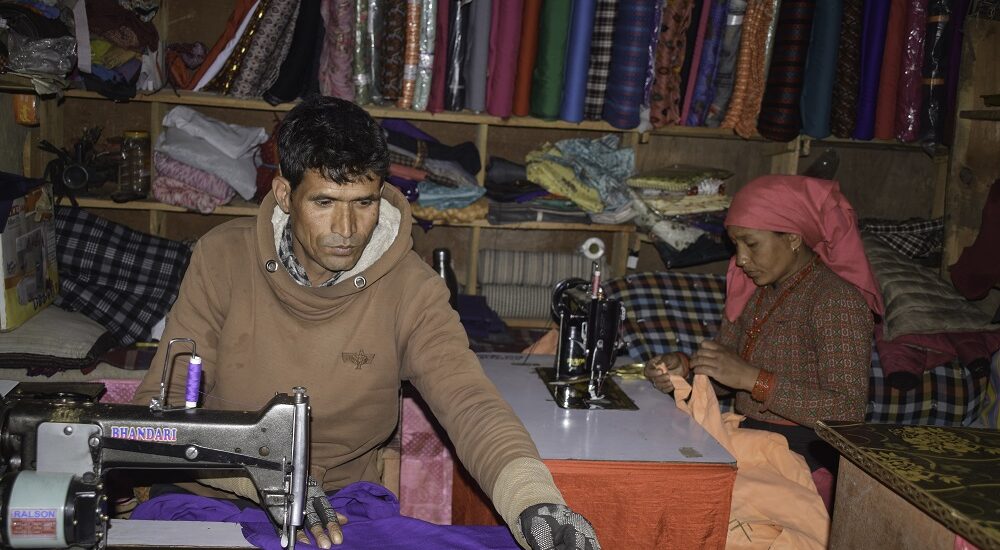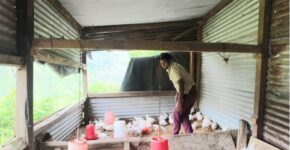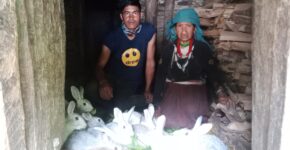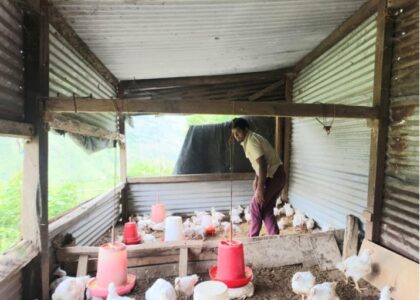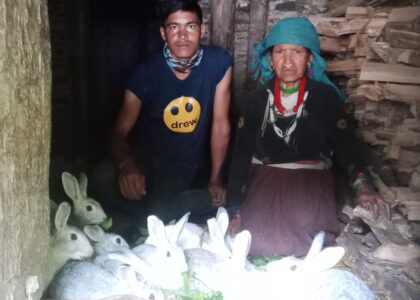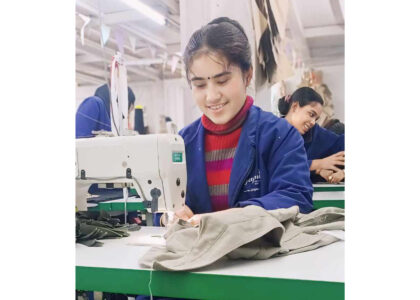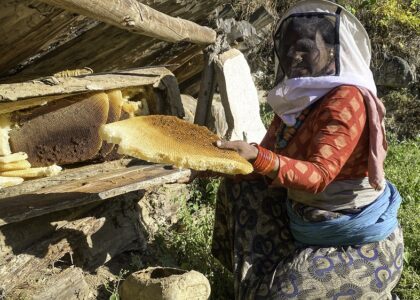Kanakasundari-4 Sinja, Jumla, has few people practicing their ancestral profession. There is a large number of people leaving the traditional profession of their forefathers to go abroad in Nepal. Dharmendra Pariyar (38 years old) is one of the missing characters. He was born into a Pariyar or Damai (dalit) family, a tailoring and weaving caste (recognized historically). Although in multi-ethnic countries like Nepal at that time people were identified by their work based on their caste, it is not necessary nowadays. Any person today can take up any profession they like or desire. However, many people have left the traditional sewing profession in Sinja.
He went to Nepalganj for the first time at the age of 16 and took sewing training. After training, he started sewing in Gothejula. After saving little by little, he started tailoring with a small investment. At that time, there was no market like it is now. The market grew, and his business also flourished. His brother started working in Gothejula, then he came to Malik Bota, Sinja. He spent about 8 years in Gothejula.
Recalling his past, he says, “Earlier, it was not like it is now; it was a custom to go to the house of the village to sew, but now, with the passage of time, the custom has changed and become easier.” At that time, instead of money, people used to give food items like pulses, rice, and potatoes as wages for sewing. He had to bring what they gave because people did not have money as easily as they do now. With the passage of time, the old custom has changed. Now, people come to the shop to get their clothes sewn and pay cash for their wages.
He has been sewing clothes in the traditional way with a small investment, moving from one place to another, and finally reaching his village. He then continued his business with modern machinery and materials in his village. With the support of the Srijana project, which started with the aim of increasing livelihood opportunities in his municipality, he got support to start his business.
From the Srijana project, he received materials such as modern sewing machines, design machines, and sewing machines. It helped a lot in the business, which has been running with the same old machine for a long time. These machines have made his work fast and efficient. He says, “I heard about the fast sewing machine but could not afford it due to my low income.” The project has greatly helped the poor villagers, who are interested in sewing and weaving, by providing them with training materials. He says, “Skills and tools are equally necessary to do business. We are always grateful to the Srijana project for improving our traditional profession and making it more profitable.”
He sews women’s clothes such as kurtas, suruwals, cholos, blouses, men’s hats, t-shirts, shorts, shirts, pants, and coats. With the help of modern machines, more clothes can be sewn in less time than before. There is no shortage of work in his shop in all months of the year. During festivals like weddings, fairs, Tij, Dashain, and Tihar, more people come to her shop for sewing. He also sells unsewn clothing. As a result, he earns up to Rs. 35,000 per month during the season. With this, he has been supporting the expenses of his wife, four daughters, and two sons.
People who want to learn sewing and weaving come to his shop for training through the Sirjana project, which has been playing a significant role in local livelihood by gathering resources and training in their own place. The project pays his expenses for the training. Even if 3 months of sewing training is in practice, it is not enough to learn to sew all the clothes, so some of them learn for a longer time and become proficient through training. He says, “It takes up to 8 months to learn to sew all the types of clothes that most people like or look for. So, those who take the long training are even able to start their own shops.”
Dharmendra is an exemplary figure who has struggled and overcome various hurdles. In today’s big crowd who says, ‘Old sayings have faded, castes have nothing to do with professions’ and there is no need to follow family profession’, he is grateful for the support received through the Srijana project, creating self-employment in his family and modernizing the old family profession.


